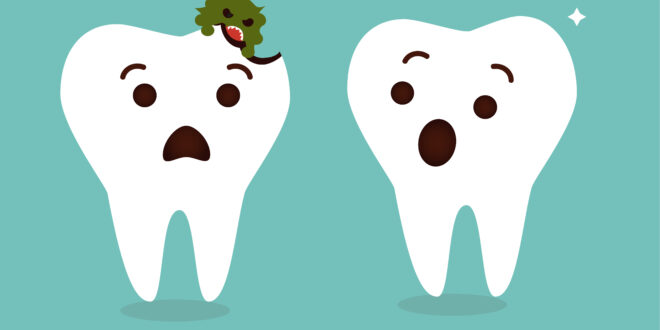The Role of Fluoride in Preventing Tooth Decay
Tooth decay, or dental caries, is one of the most common oral health issues, affecting people of all ages worldwide. Left untreated, it can lead to cavities, infections, and even tooth loss. One of the most effective methods to prevent tooth decay is the use of fluoride, a naturally occurring mineral. Fluoride strengthens tooth enamel, reverses early decay, and helps protect teeth from the harmful effects of bacteria and acid.
This article explores the vital role that fluoride plays in preventing tooth decay and promoting overall dental health.
What is Fluoride?
Fluoride is a mineral found naturally in water, soil, plants, rocks, and even the air. It is widely recognized for its ability to prevent tooth decay, and for this reason, it is commonly added to drinking water, toothpaste, mouth rinses, and some dental treatments. The regular exposure of teeth to fluoride helps protect and repair enamel—the outer layer of teeth—from the daily wear and tear caused by bacteria and acids from food and drink.
How Does Fluoride Prevent Tooth Decay?
Fluoride protects teeth in several key ways, making it a crucial component in oral care:
1. Strengthening Enamel
The outer layer of the tooth, called enamel, is exposed to acids produced by bacteria in the mouth. These acids weaken and demineralize the enamel, making teeth more susceptible to decay. Fluoride helps by strengthening enamel, making it more resistant to acid attacks. By promoting the remineralization process, fluoride encourages the re-deposition of essential minerals, like calcium and phosphate, back into the enamel.
2. Reversing Early Signs of Decay
Before a cavity fully forms, teeth go through a process called demineralization, where the enamel begins to break down. At this early stage, fluoride can reverse this damage by rebuilding the enamel, effectively preventing the formation of cavities. This ability to heal early decay makes fluoride an essential tool for maintaining healthy teeth.
3. Inhibiting Bacterial Activity
Fluoride reduces the ability of bacteria in the mouth to produce acid, thus minimizing the overall risk of tooth decay. By lowering the acidity in the mouth, fluoride inhibits the growth of harmful bacteria, creating an environment that is less likely to lead to cavities.
4. Enhancing Saliva’s Protective Role
Saliva is naturally protective against tooth decay because it helps wash away food particles and neutralize acids. Fluoride works synergistically with saliva, further boosting its ability to strengthen teeth and resist acid attacks. This combination offers an added layer of defense for teeth.
Common Sources of Fluoride
To ensure you are getting enough fluoride to protect your teeth, there are several common sources you can rely on:
1. Fluoridated Water
Fluoridated water is one of the most effective and accessible ways to prevent tooth decay. Many communities worldwide add fluoride to their public water supply as a public health measure. Drinking fluoridated water regularly helps strengthen your teeth and lower your risk of cavities.
2. Toothpaste
Most toothpaste brands contain fluoride, making brushing with fluoride toothpaste twice a day a simple yet powerful step in cavity prevention. Be sure to check the label to confirm your toothpaste includes fluoride, as this helps protect and strengthen enamel.
3. Mouth Rinses
Fluoride mouth rinses are available over the counter and provide an additional boost of fluoride. These rinses are especially useful for individuals at a higher risk of tooth decay, such as those with a history of cavities, dry mouth, or orthodontic braces.
4. Fluoride Treatments
Dentists often provide fluoride treatments during routine check-ups, especially for children or adults at higher risk of decay. These treatments come in the form of gels, foams, or varnishes, and contain a higher concentration of fluoride than what is found in toothpaste or rinses. Professional fluoride treatments are a quick and effective way to give teeth an extra layer of protection.
The Importance of Fluoride for Children and Adults
Fluoride is beneficial for both children and adults, but it plays a particularly crucial role during tooth development in children.
- Children: During the early stages of tooth development, fluoride helps form stronger enamel and prepares teeth to resist decay. Children who drink fluoridated water or use fluoride toothpaste are less likely to develop cavities.
- Adults: Fluoride continues to be important for adults, especially those prone to cavities or suffering from conditions like dry mouth, which increases the risk of decay. As enamel naturally wears down over time, fluoride helps maintain its strength and protection.
Fluoride and Dental Health in the Elderly
As people age, dental health can become more vulnerable due to issues like gum recession, dry mouth from medications, and a higher likelihood of cavities. Fluoride treatments can be particularly beneficial for seniors to help maintain strong teeth and prevent root decay, which becomes more common with age.
Safety and Fluoride: How Much is Too Much?
Fluoride is safe when used appropriately, but overexposure can lead to a condition called dental fluorosis. This condition, which typically affects children under eight while their permanent teeth are forming, results in mild discoloration or white spots on the teeth. However, fluorosis is generally mild and only occurs from excessive fluoride intake during the early years.
To prevent overexposure:
- Use only a pea-sized amount of fluoride toothpaste for children.
- Supervise young children when brushing to ensure they do not swallow toothpaste.
- Consider consulting a dentist if you’re concerned about fluoride intake.
Conclusion
Fluoride plays an essential role in preventing tooth decay and maintaining strong, healthy teeth. From strengthening enamel to reversing early signs of decay, fluoride is a vital part of oral care that benefits individuals of all ages. Whether through fluoridated water, toothpaste, or professional treatments, incorporating fluoride into your daily dental routine can significantly reduce the risk of cavities and contribute to long-term oral health.
You May Also Interested In: Proven Marketing Solution
 Personal Finance and Attractive Interest Rates Unlock Smart Savings with Low Rates and Expert Financial Tips
Personal Finance and Attractive Interest Rates Unlock Smart Savings with Low Rates and Expert Financial Tips







